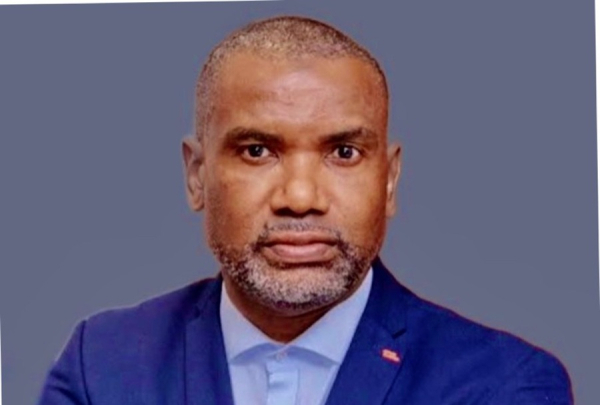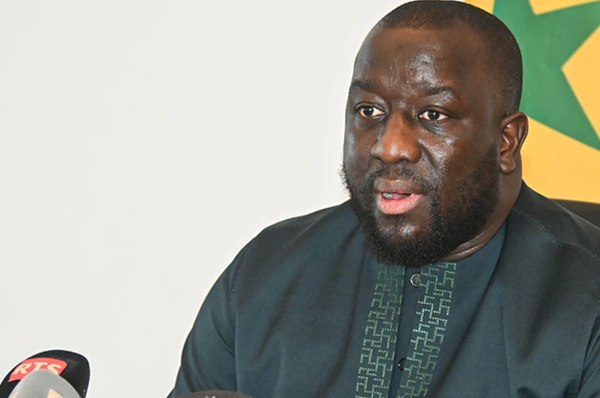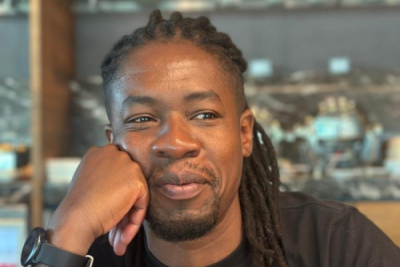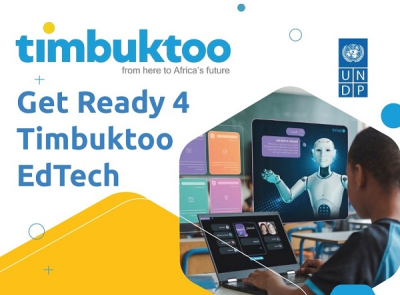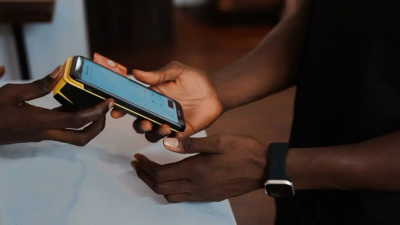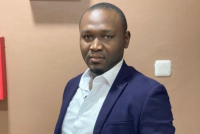- Shingie Maramba founded Urban Ubuntu to help companies manage human risk and regulatory compliance.
- Urban Ubuntu offers a centralized digital platform for risk management, business continuity, and crisis response.
- The company positions risk management as a performance driver rather than a compliance burden.
Shingie Maramba is a South African marketing expert and technology entrepreneur. He founded and operates Urban Ubuntu, a company that specializes in protecting organizations from human risk and compliance challenges. He designs tailored solutions that simplify day-to-day risk management.
Founded in 2019, Urban Ubuntu positions itself as a trusted partner rather than a traditional vendor. The company supports businesses in identifying, reducing, and monitoring risks while easing the workload on internal teams.
Urban Ubuntu offers a comprehensive proprietary platform that centralizes the management of all organizational risks. The platform integrates task workflows with automated validation, which strengthens monitoring, internal control, and regulatory compliance.
The platform also includes an impact analysis tool that examines an organization’s structure in depth to identify its most critical activities, resources, operations, and assets. This approach helps companies strengthen resilience and protect essential functions. The system also defines and automates business continuity plans to ensure rapid recovery of vital operations during incidents or crises.
When a crisis occurs, the platform automatically triggers predefined tasks for crisis management teams once a continuity plan activates. This mechanism ensures smooth coordination, tight control, and faster response times.
Urban Ubuntu also integrates a risk assessment module aligned with international best practices in risk management. The module helps organizations identify threats, select appropriate responses, and clearly assign responsibilities across teams.
Shingie Maramba holds a certification in international sales and marketing management from DACO in the United States, obtained in 1999. He also earned a diploma in marketing management from the Chartered Institute of Marketing in 2001 at the Trust Academy Center.
His professional career began in 1998 at Realtime Computers Africa, where he served as a corporate account manager for Dell. He later held strategic roles at several major firms, including SilverBridge, where he joined in 2016 as head of business development. He then joined international business technology company Equisoft in 2019 as director of wealth and insurance solutions for Europe, the Middle East, and Africa.
This article was initially published in French by Melchior Koba
Adapted in English by Ange J.A de BERRY QUENUM
- Senegal plans to provide free Internet access to one million people through Starlink by June 2026.
- The government negotiated the purchase of 5,000 Starlink terminals at preferential rates.
- About 40% of Senegal’s population still does not use the Internet despite broad mobile network coverage.
The Senegalese government plans to rely on Starlink, which recently announced the launch of its commercial operations in Senegal, to provide free Internet access to one million people by June 2026. The Senegalese Press Agency cited a statement from the Ministry of Communication and Digital Economy saying that authorities negotiated the purchase of 5,000 terminals from the U.S. company at a preferential price.
For the executive, Starlink’s arrival represents a major strategic step toward universal Internet access. The low-Earth-orbit satellite constellation should significantly reduce coverage gaps by complementing or extending terrestrial networks, especially in hard-to-reach regions.
The government prioritizes white zones through community Wi-Fi solutions, as well as education, higher education, vocational training, local authorities, border areas, and the Diomaye Plan for Casamance. The initiative should significantly reduce connectivity costs for these users while providing access to very high-speed, reliable, and efficient Internet services.
This approach aligns with the government’s objective to democratize access to high and very high-speed broadband across the national territory. The strategy focuses particularly on rural and isolated areas, where terrestrial network deployment remains economically and technically challenging. The executive has positioned satellite technology as a strategic lever within a broader digital transformation agenda that integrates information and communication technologies across all sectors to accelerate socio-economic development.
However, data from the International Telecommunication Union show that 2G, 3G, and 4G networks already covered nearly the entire Senegalese territory in 2023. A 2025 study conducted under the Senegal Digital Economy Acceleration Project offers a more nuanced view.
The study found that 24% of localities lack any network coverage, affecting about 18,858 people. The study also showed that 37% of areas suffer frequent signal losses, only 52% benefit from 4G coverage, and some zones remain limited to 2G services.
The findings indicate that these shortcomings also affect social infrastructure, including schools and health centers in remote areas, which restricts access to essential services. In terms of usage, DataReportal estimated Internet penetration in Senegal at 60.6% at the end of 2025.
The initiative nonetheless raises questions about its scalability and its actual impact on Internet adoption. Even if authorities reduce obstacles such as cost and network coverage, other factors may limit usage, including access to Wi-Fi-compatible devices, digital skills, content availability, and issues related to security, ethics, and social norms.
This article was initially published in French by Isaac K. Kassouwi
Adapted in English by Ange J.A de BERRY QUENUM
- Trevor Murimba founded MyBitSecure to enhance farm efficiency and cybersecurity across Africa.
- MyBitSecure provides digital tools for data protection, crop monitoring, and operational management.
- The company bridges agriculture and technology to improve productivity, reduce risk, and strengthen decision-making.
Trevor Murimba, a Cape Town-based cybersecurity expert, founded MyBitSecure to help African farms improve efficiency and security through accessible digital tools. His solutions connect farms, protect sensitive data, and optimize crop monitoring and daily operations.
Founded in 2023, MyBitSecure supports farmers and agribusinesses with tools that boost productivity, secure sensitive information, and simplify decision-making. The company positions itself as a bridge between agriculture and technology, seeking to build more organized, profitable, and resilient farms.
The tools address practical needs: monitoring fields, managing connected equipment, safeguarding data, and training users to integrate technology into agricultural production. Each solution aims to make farm operations more precise, predictable, and less vulnerable to human error, internal incidents, or cyberattacks.
MyBitSecure enables farmers to track activities on their land, anticipate problems, and manage resources efficiently. Users gain centralized visibility, better protection of strategic information, and reliable data to guide investment, harvest planning, and operational adjustments.
In addition to entrepreneurship, Murimba serves as a cybersecurity specialist at KingMakers, a company that develops platforms connecting fans to their favorite sports. He holds a network engineering degree from the Ansted School of Technology at the University of Zimbabwe.
Murimba began his professional career in 2002 at Prean Computers in Zimbabwe as an IT technician. He later held cybersecurity roles at companies including Engen, a South African energy firm, and Old Mutual Ltd, a pan-African financial services provider.
This article was initially published in French by Melchior Koba
Adapted in English by Ange J.A de BERRY QUENUM
The United Nations Development Programme (UNDP) has launched Get Ready 4 Timbuktoo EdTech, a three-month online incubation programme for African EdTech startups with working prototypes. Up to 50 startups will receive tailored diagnostics, specialised training modules, weekly mentoring, access to grants, and entry into the Timbuktoo network. Applications are open across Africa until February 18, 2026.
LemFi, a Nigerian fintech focused on underserved communities, is launching its money transfer services in Australia after securing regulatory approval. Australia, one of the world’s largest remittance markets, now joins LemFi’s network of more than 2 million users across Europe and North America, enabling transfers to over 30 countries, including India, China, and Nigeria.
Nigerian fintech Nomba has acquired a licensed Canadian payment provider to expand its cross-border infrastructure for businesses. The deal allows Nomba to open Canadian dollar accounts and speed up payments into the naira and other African currencies, while reducing foreign exchange and transaction costs. The move positions the company to tap growing trade flows between Africa and Canada, with plans to expand into other markets.
- Database offers 11,000 hours across 21 languages, open access
- Project aims to boost voice AI and preserve African languages
Google said on Monday, Feb. 2, it had launched WAXAL, a voice database aimed at supporting the development of AI tools tailored to Sub-Saharan Africa. The dataset covers 21 languages, including Yoruba, Acholi, Hausa, Luganda, Malagasy and Shona, and contains more than 11,000 hours of audio from nearly 2 million recordings.
“We wanted to capture how people really talk, so we asked participants to describe different pictures in their native languages. We also recorded professional voice actors in the studio to create the high-quality audio needed for text-to-speech technology,” Google said, adding that professional voice actors were also recorded in studios to provide high-quality material for text-to-speech systems.
The company said WAXAL includes 1,250 hours of transcribed speech for automatic speech recognition and more than 20 hours of studio audio for text-to-speech synthesis. The project was developed with African partners including Makerere University in Uganda, the University of Ghana and Digital Umuganda in Rwanda.
WAXAL is available under an open licence on the Hugging Face platform, giving researchers and developers free access. Google said the initiative aims to spur innovation in voice technology and help safeguard African languages online.
UNESCO estimates Africa is home to between 1,500 and 3,000 languages, but most digital tools support only a handful. Limited high-quality data has slowed the development of voice assistants, educational apps and automated transcription on the continent.
Several local initiatives are also working to address the shortage. In Benin, the “JaimeMaLangue” project encourages citizens to help build a national voice database. Other datasets, such as African Voices in Nigeria and African Next Voices in Mali, are expanding resources for underrepresented languages.
Samira Njoya
As digital education continues to expand across Africa and the Middle East, Skirora is positioning itself as an online learning platform that enables educators to earn income from digital teaching content.
Skirora is an online learning platform developed by a Tunisian startup. It aims to provide education tailored to regional needs while offering instructors a revenue model based on sales commissions. Yacine Aridhi launched the startup in 2025.
“We make education accessible, flexible and skills-driven: students can learn at their own pace, instructors can monetize their expertise, and companies can access qualified talent through a modern, high-quality platform,” the startup said.
It added that Skirora brings together courses in mathematics, coding, business, languages, design and personal development on a single platform, developed by the team that created Tuniform.
Unlike some global platforms that may not reflect local realities, Skirora offers a full suite of tools for teachers and trainers. Educators can create structured courses, manage enrolments and deliver clear learning experiences.
The platform says it prioritizes learning outcomes over viral or unstructured short-form content, responding to demand for online education that delivers measurable results, such as course completion and practical skills acquisition.
Currently in development, Skirora is focusing first on the reliability of the learning experience and instructor engagement. The startup plans to expand beyond Tunisia by attracting educators and learners from other regional and international markets.
By combining local accessibility, robust teaching tools and an economic model aligned with educators’ success, Skirora is positioning itself as a new entrant in Africa’s edtech ecosystem.
Adoni Conrad Quenum
-
Signe Fokui Maxime founded and leads Bitkap, a multifunction digital wallet that supports FCFA and U.S. dollar transactions.
-
Launched in 2020, Bitkap enables free international transfers, instant currency conversion and online payments.
-
The platform targets financial inclusion by reducing costs and complexity in cross-border and domestic payments.
Signe Fokui Maxime is a Cameroonian software developer and technology entrepreneur. He founded and currently serves as chief executive officer of Bitkap, a multifunction application that operates as a digital wallet, money transfer service and online payment solution.
Launched in 2020, Bitkap allows users to deposit, store, send and withdraw money in CFA francs and U.S. dollars. The application focuses on simplifying everyday transactions by offering a fast and seamless experience completed in just a few clicks.
Users can fund their accounts in FCFA or USD and transfer funds using a username known as a cashTag or a QR code. The system allows users to avoid sharing bank details or mobile money numbers. Bitkap offers free international transfers, which eliminates fees that often increase the cost of cross-border remittances.
Bitkap also differentiates itself through instant currency conversion. Users can deposit funds in one currency and withdraw them in another without using traditional foreign exchange services and their often unfavorable rates. The application displays real-time exchange rate movements between the CFA franc (XAF) and the U.S. dollar (USD), which enables users to choose optimal conversion timing. The platform completes peer-to-peer transfers in four simple steps and provides continuous transaction tracking.
In addition, Bitkap allows users to generate instant virtual Visa cards for online payments on platforms such as Facebook, Amazon, Netflix, PayPal and betting websites. The application also enables immediate mobile airtime purchases in FCFA or USD for all mobile operators operating in Cameroon.
Signe Fokui Maxime earned a university diploma in mathematics in 2016 from the University of Douala. He obtained a bachelor’s degree in software engineering in 2019 from the University of Dschang. He later continued his studies in France at the École Supérieure des Technologies de l’Information Appliquées aux Métiers, where he earned a master’s degree in artificial intelligence in 2024.
He began his professional career in 2016 at Cameroonian fintech Ring Corporation as a developer. In 2019, he joined IT company ACESY as lead software development engineer. He later moved to French technology firm Dembou Consulting, where he worked as a Java developer until 2020.
This article was initially published in French by Melchior Koba
Adapted in English by Ange J.A de BERRY QUENUM
-
Audrey Ludivine Baha co-founded and leads Nofey, a digital platform that connects individuals with vetted local artisans across Africa.
-
Founded in 2025, Nofey enables service booking, reviews and Mobile Money payments to build trust in informal service markets.
-
Baha combines an engineering background with advanced entrepreneurial training at HEC Paris.
Audrey Ludivine Baha is a Cameroonian agro-industry engineer and entrepreneur. She co-founded and currently serves as chief executive officer of Nofey, a startup that helps individuals easily find reliable artisans and technicians across Africa.
Founded in 2025, Nofey operates a mobile application that connects households with artisans, technicians and other professionals who meet everyday needs. The company focuses on building trust between service seekers and service providers in markets that remain largely informal.
For individuals, the platform enables fast access to nearby, vetted artisans. Users can search for services such as plumbing, electrical work, hairdressing, mechanics, carpentry, painting, air conditioning, locksmithing, gardening and masonry, among others. Each professional maintains a profile that includes ratings, customer reviews and practical information to assess reliability. The platform processes payments through Mobile Money, which ensures secure transactions adapted to local usage patterns.
Nofey also provides artisans and technicians with tools to showcase their skills and expand their customer base. Service providers can create professional profiles, receive client requests, manage bookings and receive prompt payments through the platform. A dedicated provider application offers activity management tools designed to increase job opportunities and strengthen professional credibility.
The company designed the user experience to remain simple and intuitive. Users search for a service, review professional profiles, communicate through in-app messaging, then book and pay directly within the application. The process enables users to secure a service provider within minutes.
Baha earned an engineering degree in agro-industry in 2025 from UniLaSalle in France. She is currently completing a master’s degree in entrepreneurial studies at HEC Paris. She began her professional career in 2021 as an assistant engineering intern at Les Chocolateries Artisanales Nohi in Cameroon.
After completing a production internship at French agrifood company Cycloponics, she worked as a freelance translator in 2023. In 2024, she joined French natural beverage brand Necence as a research and development assistant. The company promoted her three months later to project manager in R&D and sourcing.
This article was initially published in French by Melchior Koba
Adapted in English by Ange J.A de BERRY QUENUM
More...
-
GoCab raised $45 million in equity and debt to expand electric and inclusive mobility solutions in Africa.
-
The funding round combined $15 million in equity and $30 million in debt led by E3 Capital and Janngo Capital.
-
GoCab reported more than $17 million in annual recurring revenue across five African markets after 18 months of operations.
In a statement released on Tuesday, February 3, mobility and vehicle financing fintech GoCab announced the closing of a $45 million funding round. The transaction included $15 million in equity and $30 million in debt and aimed to accelerate the rollout of electric and inclusive mobility solutions across multiple African markets.
E3 Capital and Janngo Capital led the funding round alongside KawiSafi Ventures and Cur8 Capital. The company said it would use the funds to strengthen operations in existing markets, enter new high-growth cities and increase the share of electric vehicles in its fleet. GoCab also plans to deploy artificial intelligence-based tools for credit scoring, fleet optimization and risk management.
“In Africa, millions of people remain excluded from both mobility and financing. This funding round allows us to scale while expanding access to ethical financing and accelerating the transition to electric mobility,” said Azamat Sultan, co-founder and executive chairman of GoCab.
Azamat Sultan and Hendrick Ketchemen founded GoCab in 2024 after careers in investment banking focused on structured finance and emerging markets. The company set out to address limited access to financing and vehicle ownership for platform economy workers. GoCab offers a model that allows drivers and delivery workers to generate stable income while gradually acquiring ownership of their vehicles.
After 18 months of operations, GoCab operates in five African markets and reports more than $17 million in annual recurring revenue. The company employs more than 120 people representing 18 nationalities. GoCab supports several thousand drivers and aims to help structure more sustainable urban mobility systems.
As Africa’s platform workforce continues to grow while remaining largely excluded from traditional financial systems, GoCab aims to position itself as a key player in sustainable mobility. Over the medium term, the company targets the deployment of 10,000 operational vehicles and $100 million in annual recurring revenue by combining ethical financing, technology and energy transition.
This article was initially published in French by Samira Njoya
Adapted in English by Ange J.A de BERRY QUENUM
Google is testing a new Gemini feature called Import AI Chats, which would let users transfer their chat histories from rival assistants such as ChatGPT, Claude and Grok. By carrying over context and user preferences, the tool aims to reduce switching costs. Still in beta, the feature could add momentum to broader efforts across the industry to improve data portability and interoperability.
Paga, via its Doroki merchant platform, has formed a strategic partnership with Nigeria’s Leadway Assurance to provide tailored insurance solutions for retailers. The current rollout includes coverage for cash-in-transit, fire and theft, and Point-of-Sale (POS) terminal protection. Soon, the partnership will expand to offer credit life insurance for Memento loans. Beyond coverage, the initiative focuses on building merchant resilience through risk awareness and education.
Onafriq Nigeria Payments Limited has partnered with the Pan-African Payment and Settlement System (PAPSS) to launch a pilot of the first cross-border wallet payment service between Nigeria and Ghana. The six-month trial, approved by the Central Bank of Nigeria, allows payments to be made in naira and settled in real time, using the partners’ banking and mobile money networks. The service is aimed at consumers, merchants and small businesses.


